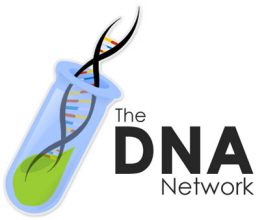In the past decade, scientists have repeatedly referred to ‘Mitochondrial Eve‘, the (hypothesized) source of mtDNA for all humans alive today. She is believed to have lived approximately 140,000 years ago in Africa. There is also ‘Y-chromosomal Adam‘, the (hypothesized) source of every living man’s Y-DNA. He is also believed to have lived in Africa, but more recently, between 60,000 and 90,000 years ago. Thus, Mitochondrial Eve and Y-chromsomal Adam were not a couple – they were not the source of all human genetic material on the planet today. Instead, the terms refer to the founders of all the mtDNA and Y-DNA respectively.
For a wonderful description of some of the genetic behind Mitochondrial Eve and Y-chromsomal Adam, go to “The Questionable Authority“, a blog which is part of Scienceblogs. While you’re there, be sure to read the comments, where the discussion addresses the time disparity between the two DNA sources (140,000 years ago versus 60-90,000 years ago).
